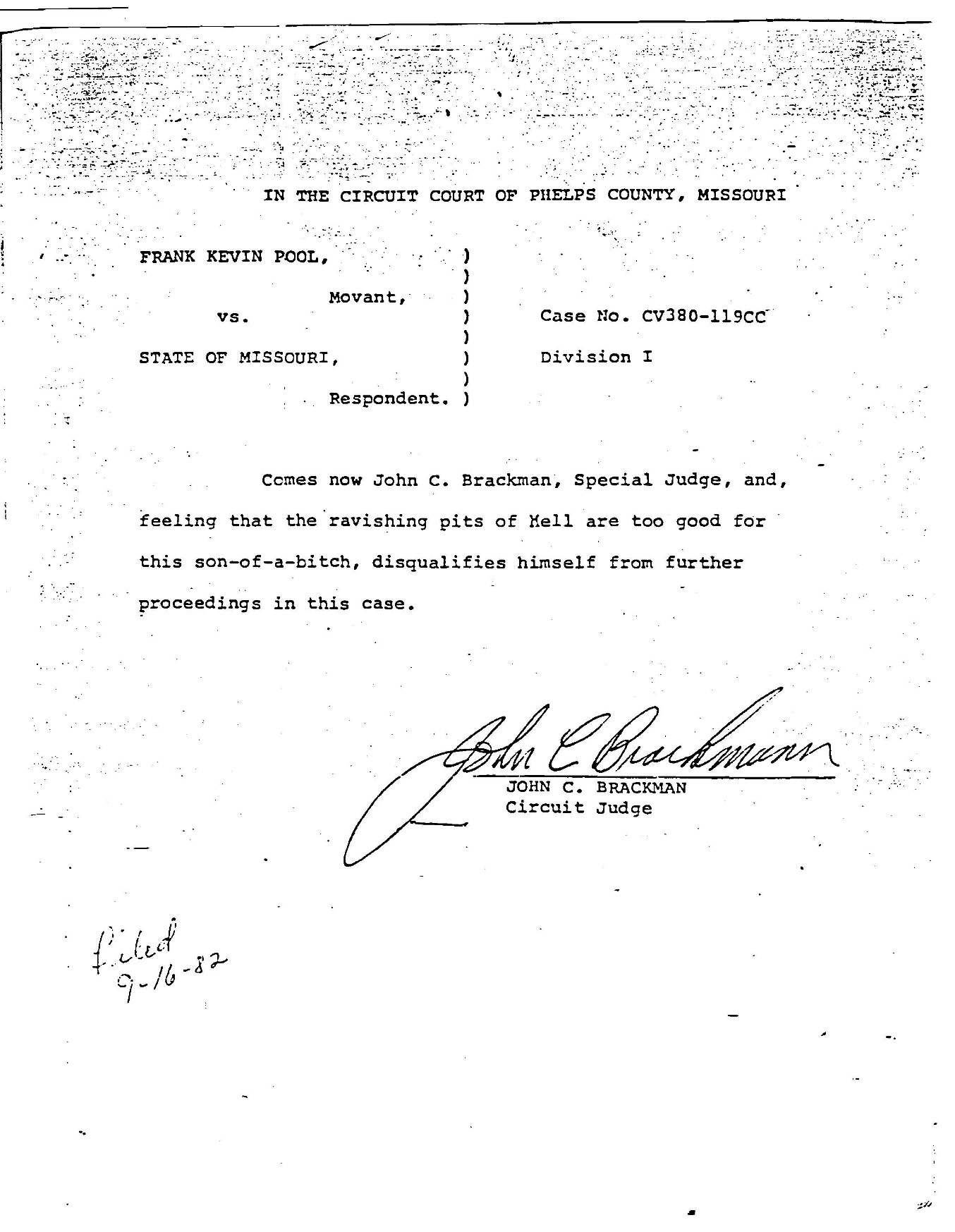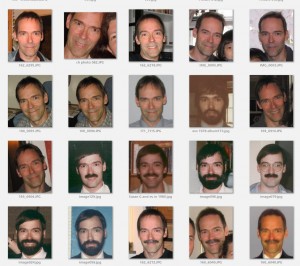Judicial Temperment
Judges are supposed to stay above the emotional fray. They are supposed to apply the law even-handedly. The attached court Order (which I recently found in some of my old paperwork) is a strikingly honest admission by one judge that he would have been unable to maintain judicial composure in a particular case. It's an Order recusing himself from the case of a man that had been accused and convicted of murdering a police officer as that officer slept.
This is not a case I handled, but it was a case of which I was aware. I once met this judge (back in the 1980's), and he was a generally pleasant man. A clerk from the Phelps County, Missouri Court verified for me that this case was actually handled in that Court.
I'm posting this Order signed by Judge John Brackman of Franklin County, Missouri, because I find it to be a stark reminder that most judges maintain their composure, despite what they might be feeling inside. This Order is one of those glimpses inside one judge's psyche, reminding us that judges are capable feeling strong emotions, which reminds me of this earlier post on emotions and decision-making.


